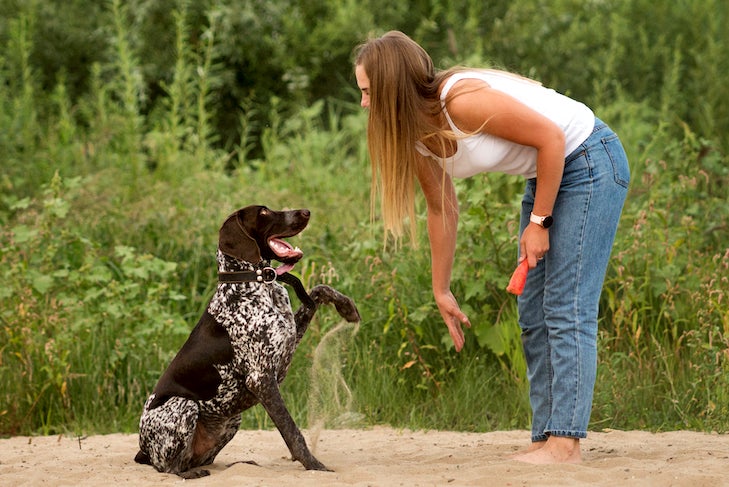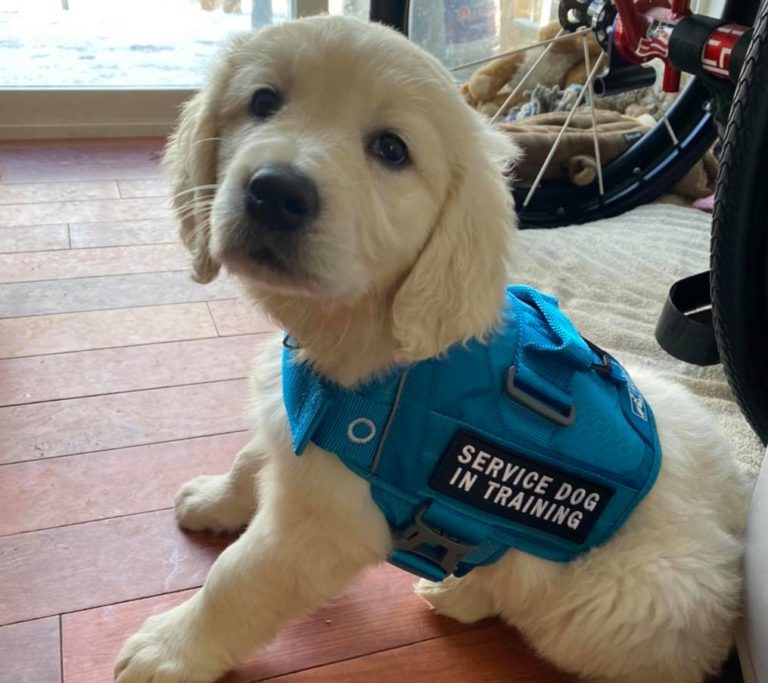Unlock Your Dog's Prospective: Proven Pet Training Approaches for Success
Reliable canine training is a nuanced process that hinges on recognizing canine actions and utilizing scientifically backed strategies. By integrating positive reinforcement, developing clear commands, and prioritizing socialization, canine proprietors can grow a productive connection with their pet dogs.
Comprehending Dog Habits
Recognizing pet dog habits is vital for reliable training and fostering a favorable relationship between pet dogs and their proprietors. An extensive grasp of canine body movement, vocalizations, and social interactions is crucial for acknowledging their requirements and feelings. Dogs connect mostly through non-verbal cues; for instance, a wagging tail might suggest exhilaration, while pinned ears can signify worry or submission.

Additionally, ecological elements play a considerable function in forming a pet dog's actions. Changes in routine, brand-new surroundings, or the visibility of strange individuals can lead to tension or anxiety in pets. Identifying these triggers makes it possible for owners to minimize damaging reactions and create ideal training approaches.
Ultimately, a deep understanding of canine actions lays the foundation for effective training approaches, boosting both actions and the total bond between the pet dog and its proprietor. dog training charlotte. This understanding is important for fostering a well-adjusted, satisfied canine buddy
Favorable Support Strategies
Reliable training relies greatly on positive reinforcement strategies, which have been revealed to produce substantial results in shaping wanted actions in canines. This technique includes compensating a dog for exhibiting specific actions, thereby boosting the likelihood that these actions will certainly be repeated. Rewards can take various types, including deals with, praise, toys, or play, depending on what encourages the specific pet dog.

It is necessary to gradually phase out benefits as the pet learns the behavior, transitioning to periodic reinforcement. This method preserves the actions gradually while preventing dependence on continuous rewards. By focusing on favorable support, trainers can grow a trusting partnership with their pets, advertising a cooperative and healthy training environment that improves overall obedience and performance.
Developing Regular Commands
A fundamental facet of effective pet training is the establishment of constant commands. Consistency in commands is important for efficient communication in between the instructor and the canine. When commands are consistent, dogs find out to associate certain words with wanted habits, which accelerates the training procedure and enhances understanding.
To establish regular commands, it is essential that all member of the family utilize the same terminology and motions. If one person see this site uses "sit" while another says "rest down," it can produce confusion for the dog. Select clear, distinct words for commands and make certain every person entailed in the pet dog's training abides by these selections.
Furthermore, repetition is crucial. Strengthen commands with frequent practice, making sure that the dog obtains adequate possibilities to react appropriately. When a pet dog effectively follows a command, instant favorable reinforcement needs to comply with. This might be in the kind of treats, appreciation, or play, strengthening the connection between the activity and the command.
Lastly, be individual. Establishing constant commands requires time and initiative. With commitment and clearness, you will certainly assist your pet dog establish a solid understanding of expectations, ultimately bring about a well-behaved friend.
Socializing and Exposure
Interacting socially a canine is vital for promoting a certain and well-adjusted friend. This process entails subjecting your pet to a range of environments, individuals, and various other pets to create their social skills and versatility. Early socializing, preferably in between the ages of three to fourteen weeks, is critical, as it lays the groundwork for a canine's future habits.
Throughout socializing, aim to supply favorable experiences in various setups, such as parks, active roads, and homes with various other pet dogs. Present your pet dog to various stimulations, consisting of audios, views, and smells, making sure that each encounter is rewarding. This exposure assists alleviate concern and anxiety, leading the way for an extra resistant dog.
Engaging in regulated team play sessions with various other canines can also improve social abilities, showing your pet ideal communications and borders. Constantly monitor your dog's comfort degree throughout these experiences, gradually boosting exposure as their confidence grows. Bear in mind, the goal is to create an all-around pet that flourishes in varied circumstances, advertising an unified connection with both human beings and various other pets. Prioritizing why not find out more socialization will significantly add to your pet's total happiness and habits throughout their life.
Overcoming Common Training Difficulties

Pet dogs might battle to concentrate in unknown or busy settings. Progressively desensitize your pet to disturbances by beginning training in a peaceful atmosphere and slowly introducing even more stimuli as they come to be skillful.
Additionally, behavior concerns like jumping or excessive barking can come to be irritating. Address these by showing alternate behaviors, such as sitting steadly when greeting guests. Uniformity and persistence are important; reinforce desired actions regularly and avoid abuse, which can result in complication.
Finally, recognize that each pet is special, and training timelines may differ. Tailor your strategy to your pet dog's individual demands, and seek professional support if required. With willpower and the appropriate methods, conquering these obstacles can cause a well-trained, delighted canine companion.
Final Thought
In conclusion, opening a dog's possible necessitates a detailed method that includes an understanding of canine actions, the application of positive support techniques, and the site here facility of consistent commands. Early socialization and direct exposure to diverse settings further boost a dog's versatility and self-confidence. By dealing with typical training obstacles with tailored methods and perseverance, a harmonious and cooperative connection in between dog and handler can be promoted, inevitably resulting in a well-behaved buddy efficient in thriving in various circumstances.
Efficient pet dog training is a nuanced procedure that pivots on understanding canine behavior and utilizing medically backed approaches.Understanding dog behavior is necessary for effective training and fostering a positive connection in between pet dogs and their proprietors.Efficient training counts greatly on favorable support techniques, which have been shown to produce considerable outcomes in forming wanted actions in pets. When commands are consistent, dogs learn to associate particular words with desired habits, which speeds up the training process and enhances understanding.
In conclusion, unlocking a canine's prospective requires a detailed technique that includes an understanding of canine actions, the application of favorable reinforcement methods, and the establishment of consistent commands.
Comments on “Why Dog Training Near Me is Crucial for Your Canine Friend”